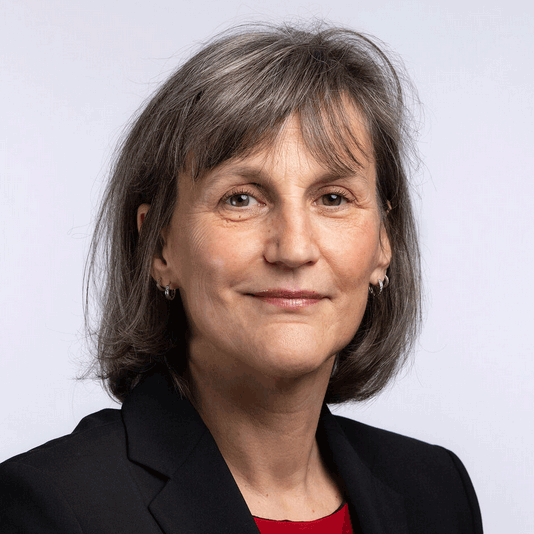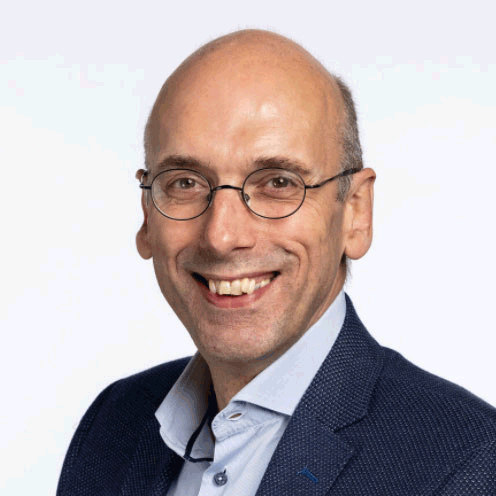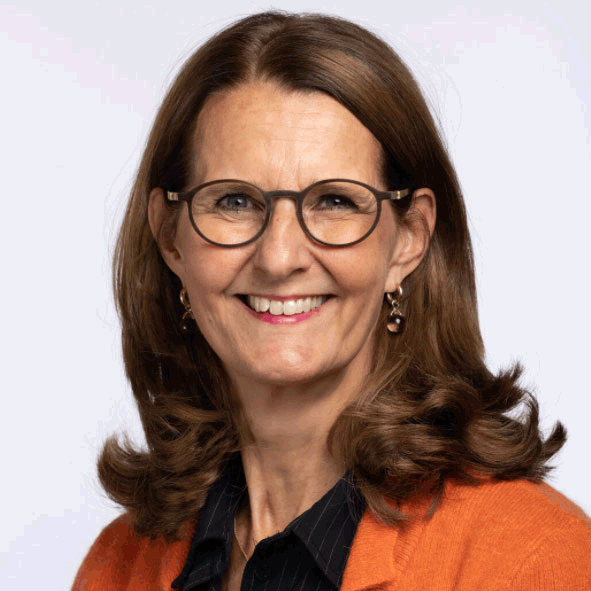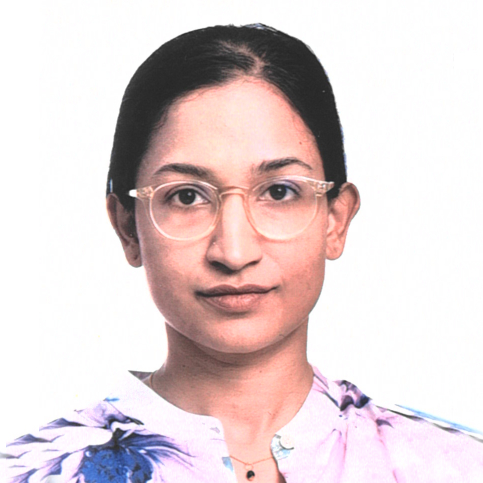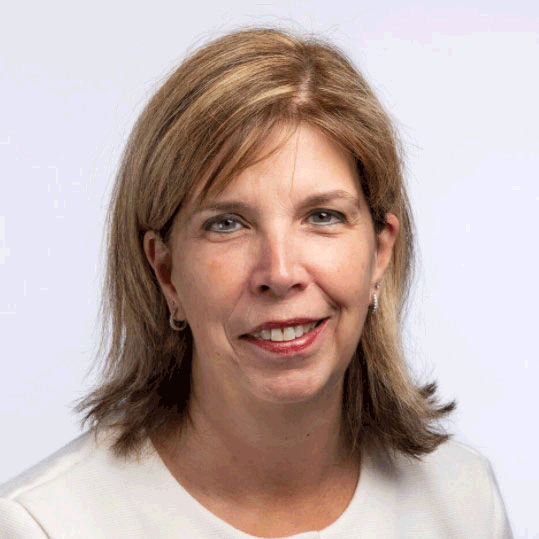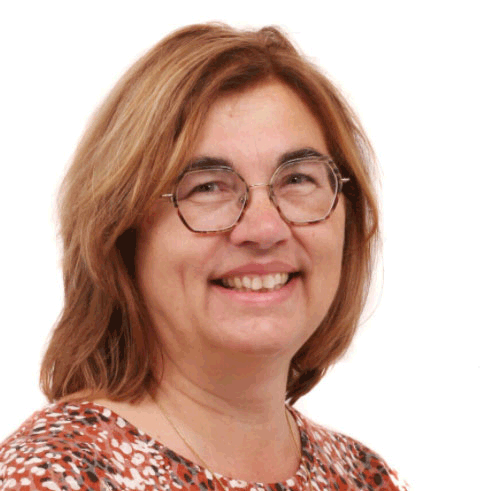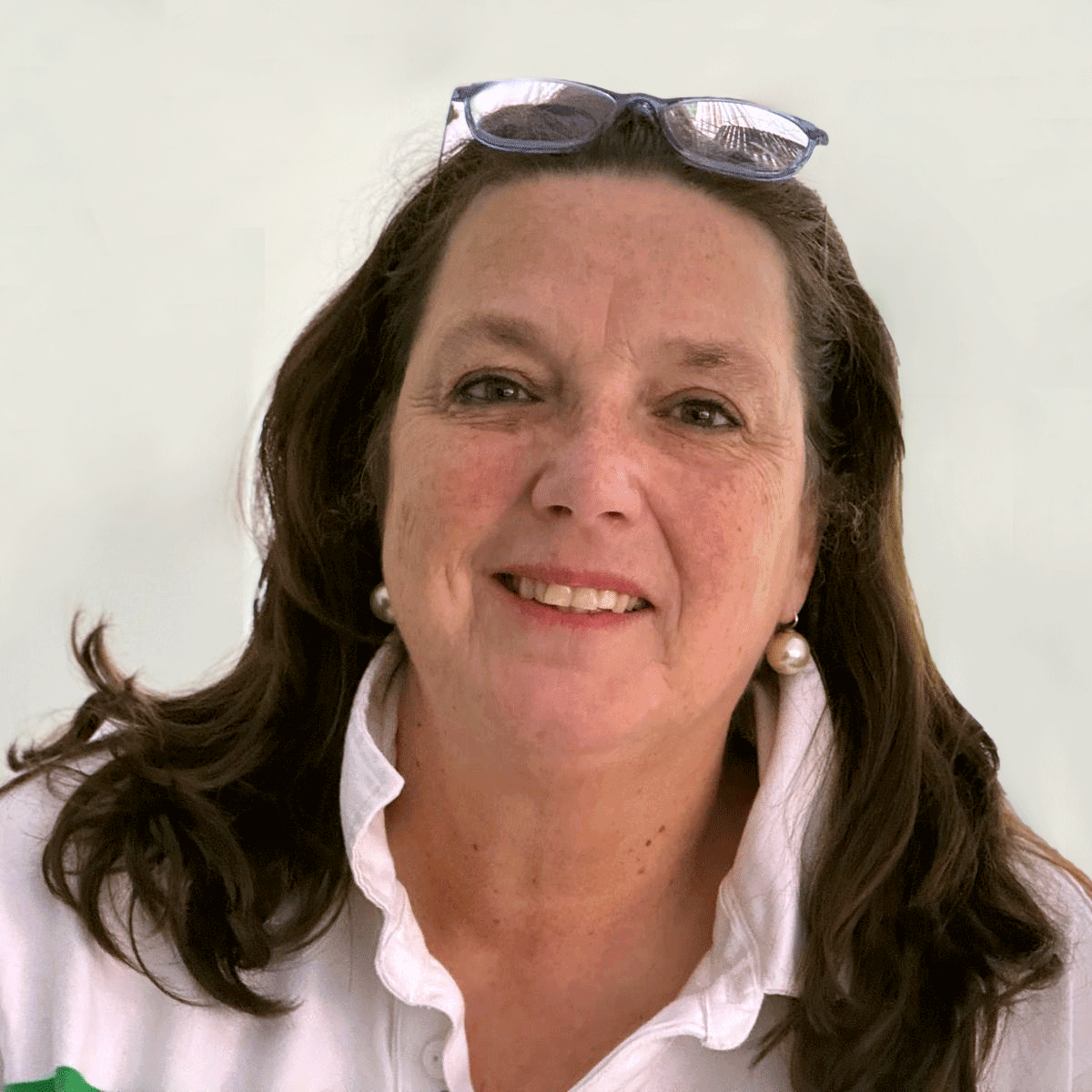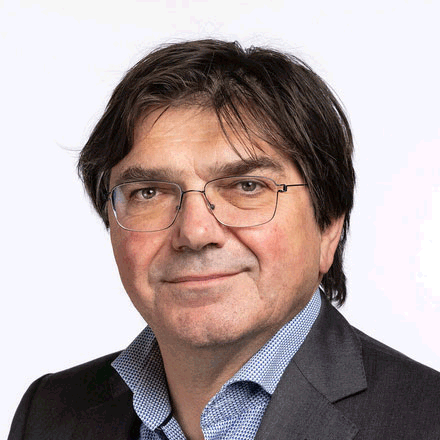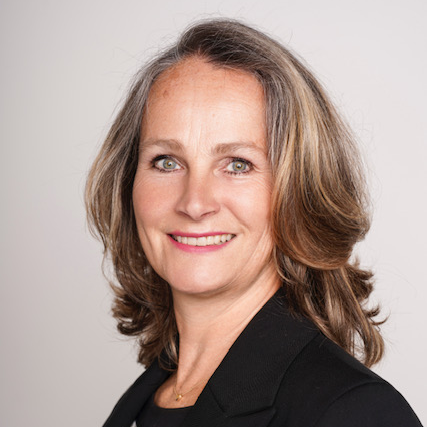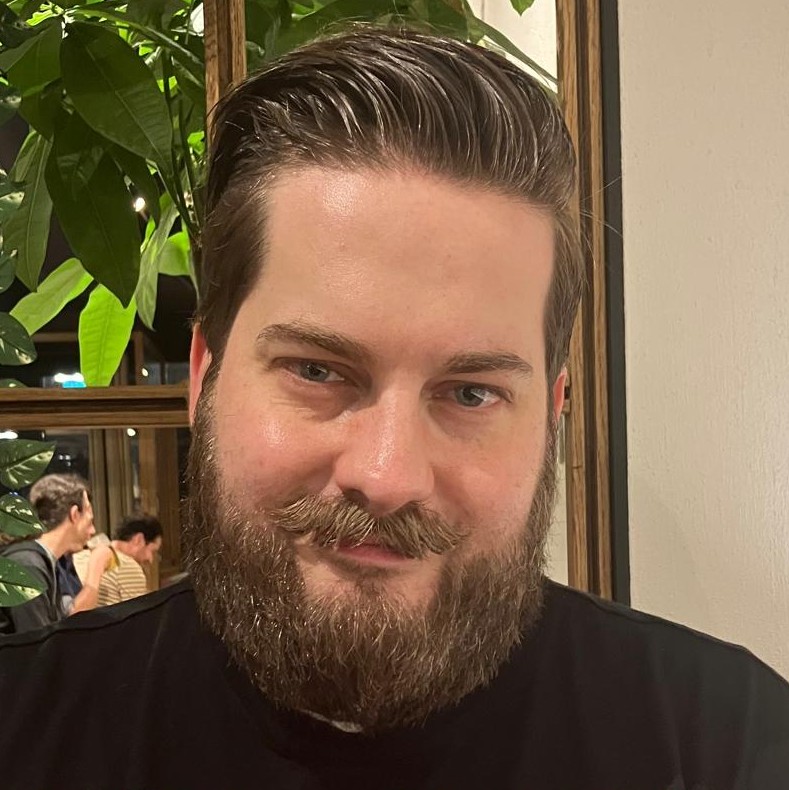Currently, half of all adults are overweight and more than 15% are obese. Obesity is a chronic endocrine disease that disrupts numerous fat and intestinal hormones, often increasing appetite. There are also new insights into how the notorious yo-yo effect occurs. It is well known that obesity leads to hundreds of other diseases, such as diabetes, cardiovascular disease, depression, osteoarthritis, various forms of cancer, and reduced labor participation.
For an effective approach, it is important to screen for the causes and type of obesity. This can be done via www.checkoorzakenovergewicht.nl. Treatment can then be tailored accordingly (see www.behandelovergewicht.nl).
Developments in the field of obesity treatments are currently advancing rapidly. For example, there are new forms of lifestyle interventions and new obesity medications that are already available and reimbursed or will become available in the near future and also have a positive impact on people\'s ability to work. The role of the insurance doctor is also discussed in this context.
This talk will chart an unexpected course, from being an outsider, to the centre of a field, and back out again. I start by debunking both a Science paper that argues for a hard upper limit to human life, and a Nature paper that argues the inverse. Neither are retracted. Then, I annoy all sides of an unpleasant debate by providing a new theoretical finding on the limits of life: the idea there is one limit to survival and that there is there no limit to survival both appear to be wrong. I then show a theoretical result that reveals how extremely errors accumulate nonlinearly with age.
This model explains the existence of late-life mortality plateaus, invalidates late-life mortality models (like the Kannisto model), causes substantial problems when modelling longevity risk, and breaks population estimates. Finally, I demonstrate how this uncorrectable nonlinear error process has generated junk data on a shocking scale: supercentenarian databases are filled with ‘anomalies’, virtually all centenarian data appears to be undetected errors, and 71 years of UN data seems to be dominated by junk beyond the age of 80.
These theoretical and analytical findings have been awarded the Ig Nobel prize for my incorrigible, but unanswered, questions
Are We Making It Hard to Be Honest? How Behavioural Science Can Encourage People to Be More Truthful About Their Health
Under-disclosure during underwriting and exaggeration in health claims point to a common challenge: encouraging honest responses. But could the way we design our forms and questions be part of the problem?
In this session, we’ll explore how common mistakes in health-related forms can unintentionally discourage people from telling the full truth about their health. Drawing on insights from behavioural science, we’ll unpack the psychological forces at play - like fear, confusion and mistrust – and show how thoughtful design, clear communication, and a more empathetic approach can lead to more accurate and reliable responses.
This presentation aims to provide an in-depth overview of the epidemiology of the most significant liver diseases, emphasizing current global and regional trends in prevalence and burden. It will trace the historical development, alongside discussion of current clinical guidelines and the associated procedural costs of liver biopsy.
The session will also examine advances in noninvasive liver assessment techniques, comparing their diagnostic accuracy, clinical utility, and cost-effectiveness relative to traditional biopsy. Finally, illustrative case studies will be presented to illustrate the pearls when underwriting individuals with hepatitis B and C. This will be a prequel to the concluding talk later today on alcoholic and fatty liver disease.
This essential lecture examines how modern healthcare must move beyond traditional methods — like the stethoscope — to adopt a data-driven, technology-enabled, and clinically led future. Participants will explore the critical role of Informatics Solutions in addressing complex population trends, the demand for personalized care, and mounting provider workflow challenges.
The session will break down the complexities of data standards, interoperability, and structured clinical data, while demonstrating the immense value of unstructured patient data in completing the full healthcare story. Attendees will learn actionable strategies for leveraging technology to achieve comprehensive, evidence-based, and equitable care delivery models.
The weight is over – a promising study into return-to-work strategies for disability claimants with metabolic dysfunction masquerading as multi co-morbidity
This session will explore the findings from a Swiss Re CMO audit of long term disability claims and how it led to the development of a metabolic rehab programme, with early results presented and discussion around RTW strategies.
Behavioural Science brought to life: hands-on workshop tackling a real customer pain-point
In this interactive workshop session, we will go deeper into the world of behavioural science.
This vital lecture explores the next frontier in personalized healthcare: bridging clinical data with Social Determinants of Health (SDOH) to achieve true health equity. Dr. Pinho will detail the limitations of current electronic medical records in capturing nuanced social data and illustrate how a data-driven, clinically led, and tech-enabled approach is necessary to meet evolving patient complexity.
The session will emphasize the immense value of unstructured patient data — reading between the lines of the clinical notes — to identify social differences in care delivery and empower effective community intervention. Attendees will leave with a greater understanding of data standards, interoperability, and the technological solutions required to write the next generation of social prescriptions.
Behavioural Science brought to life: hands-on workshop tackling a real customer pain-point
In this interactive workshop session, we will go deeper into the world of behavioural science.
This vital lecture explores the next frontier in personalized healthcare: bridging clinical data with Social Determinants of Health (SDOH) to achieve true health equity. Dr. Pinho will detail the limitations of current electronic medical records in capturing nuanced social data and illustrate how a data-driven, clinically led, and tech-enabled approach is necessary to meet evolving patient complexity.
The session will emphasize the immense value of unstructured patient data — reading between the lines of the clinical notes — to identify social differences in care delivery and empower effective community intervention. Attendees will leave with a greater understanding of data standards, interoperability, and the technological solutions required to write the next generation of social prescriptions.
Discerning advanced liver fibrosis can be challenging and due to increasing prevalence of MASLD along with increased trends on alcohol use, we should expect early claims.
In this session, we will explore why women are more vulnerable to these processes and reveal the red flags at time of underwriting that should prompt high suspect for advanced liver fibrosis and thereby protect your business from early claims.
An administrative perspective on quality, responsibility, and innovation
Healthcare is stuck. We see it in hospital care, long-term care, and also in social security. Systems that were once intended to protect are now sometimes hindering action. Responsibilities are fragmented, professionals are caught between protocols and production requirements, and citizens get lost in bureaucracy. Kjeld Aij, director at Erasmus MC and PhD in lean and leadership in healthcare, takes a fresh, systemic look at the foundations of our healthcare system. Why are things getting stuck? What is going on with the WIA? And what can we learn from hospital experiences about focusing on quality and value without getting bogged down in control freakery or management jargon?
In this stimulating lecture, Kjeld Aij takes us through sharp observations, confrontational examples, and hopeful perspectives for action. An invitation to contribute, from everyone\'s unique role, to a healthcare system that is once again coherent, dynamic, and meaningful.
Life after childhood cancer
This presentation will discuss the late effects of childhood cancer treatment and the care required. It will answer questions such as: What late effects occur? How often do they occur? Who is at risk of late effects? What problems do survivors encounter in their lives after childhood cancer?
The health benefits of an active lifestyle are well known, but in many regions in the Netherlands, less than 50% of people meet the recommended guidelines for physical activity. An important challenge is to understand what really motivates people to adopt and maintain a physically active lifestyle—and how you can make that change sustainable. In this session, we explore how physical activity at the cellular level contributes to strengthening the body (i.e., muscles) and improving endurance. We also highlight the influence of lifestyle factors, such as regular exercise, on the aging process and how this works. However, understanding the negative effects of inactivity in later life does not necessarily motivate people to become more active.
As a possible incentive for a physically active lifestyle, we introduce the concept of biological age—a measure of the overall health and functional state of the body at the cellular and molecular level—in comparison to chronological age, which simply reflects the number of years lived. A biological age that is higher than chronological age can serve as a wake-up call. It reveals how behavior, such as physical inactivity, contributes to accelerated aging. Can this insight encourage people to adopt healthier routines, including regular exercise? How nice would it be to slow down the biological aging process and rejuvenate, with the side effects of physical and mental health and a greater chance of a healthy old age?
This presentation will discuss what is needed to use the concept of biological age as a motivator for an active lifestyle and what challenges may arise in doing so.
Functional Neurological Disorders (FND) are still often misunderstood or misinterpreted. However, in recent years, a significant paradigm shift has taken place. FND is now regarded as a neurological disease. Furthermore, the diagnosis of FND is no longer one of exclusion, but rather one based on positive diagnostic criteria.
This presentation offers insight into the neurological reality of FND and its implications for healthcare and policy.
Alwin van Drongelen will present about the impact of irregular working hours on employee health and well-being. With his experience and knowledge from within the aviation sector and various types of high-risk professions, he will describe the short-term and long-term effects of irregular working hour exposure, and how these effects relate to older employees and those with chronic conditions.
His presentation will also explore the possibilities to mitigate the negative effects of irregular working hours, and the policy that is applied within aviation. Finally, the implications for occupational health insurance will be addressed.
“Yes, no, or maybe?”: update on recognizing return-to-work mode with the REMODE tool in people without (permanent) employment who have mental health issues
REMODE is a validated checklist for recognizing the return-to-work mode in people on sick leave without (permanent) employment who have psychological complaints. The instrument was developed on the basis of qualitative and quantitative research and exhibits strong psychometric properties. Sickness benefit professionals, including insurance doctors, can use REMODE to systematically assess perceptions, cognitions, and attitudes about returning to work and tailor reintegration guidance accordingly. The first results of an implementation study within the UWV, focused on effectiveness and practical applicability within insurance medical practice, are expected in the fall of 2025.
Feasibility of the BAR tool and guidelines for interprofessional collaboration during the reintegration process
In order to improve cooperation between company doctors (CDs), insurance doctors (IDs), and occupational experts (OEs), the BAR instrument and multidisciplinary guidelines were developed based on the International Classification of Functioning, Disability, and Health (ICF). The aim of this study was to investigate the comprehensibility, applicability, and acceptance of the BAR instrument and the guidelines among professionals.
Factors influencing the implementation of eHealth interventions aimed at improving labor force participation: preliminary results of a scoping review
Participation in work is important because it contributes to people's health and well-being. However, sustainable work participation is often complex for people with a chronic condition or disability. EHealth interventions can improve the work participation of these people. However, successful implementation of these interventions in practice often does not take place or takes a long time.
Knowledge about which factors influence the implementation of eHealth interventions aimed at improving work participation is largely lacking, but could be used to promote implementation.
Associations between social insurance literacy and perceived justice and perceivedfairness in a work disability claim setting
Many individuals applying for work disability benefits do not have sufficient knowledge and abilities to successfully interact with the social insurance system, which in turn could lead to feelings of injustice or unfairness.
To examine the associations between social insurance literacy (SIL) and perceived justice and perceived fairness, a cross-sectional survey study was conducted among clients applying for work disability benefits in the Dutch social insurance system.
In this presentation, the results will be presented and we will discuss how social insurance literacy is associated with perceptions of justice or fairness.
Institutional trust in agencies involved in disability assessments: findings from a systematic literature review
Trust in public agencies involved in disability assessments and income support is essential for open communication, engagement, and sustainable participation. In this systematic literature review, we investigated which factors influence this trust.
During the presentation, we will discuss which factors influence institutional trust according to international studies. We will also discuss what insurance doctors themselves can do in practice to strengthen this trust and thus better support the participation of workers and job seekers.
Interprofessional learning as the key to effective collaboration in work and health: insights from Project IPL
Effective collaboration between insurance doctors, company doctors, and occupational experts is crucial for reintegration and sustainable employability, but is still rarely applied in the field of labor and health. The Interprofessional Learning (IPL) project developed three learning activities: interactive training, e-learning about collaborating with the BAR instrument, and a methodology for interprofessional case discussion.
During this session, the development experiences and lessons learned from Project IPL will be shared. The presentation will contribute to greater awareness of the importance of good interprofessional collaboration in reintegration and offer concrete tools for strengthening interprofessional collaboration in the field of work and health.
Complaints: part of the job?! Impact of non-disciplinary complaints on the mental well-being and professional conduct of (insurance) doctors at the UWV
It is well known that disciplinary complaints have a major impact on doctors, but non-disciplinary complaints are much more common in insurance medicine. However, the potential impact of this type of complaint has been little researched.
This parallel session presents the results of a qualitative study into the impact of non-disciplinary complaints on the mental well-being and professional conduct of UWV (insurance) physicians. This study was conducted as part of postgraduate medical training and was awarded the Talmapenning in 2025.
“Yes, no, or maybe?”: update on recognizing return-to-work mode with the REMODE tool in people without (permanent) employment who have mental health issues
REMODE is a validated checklist for recognizing the return-to-work mode in people on sick leave without (permanent) employment who have psychological complaints. The instrument was developed on the basis of qualitative and quantitative research and exhibits strong psychometric properties. Sickness benefit professionals, including insurance doctors, can use REMODE to systematically assess perceptions, cognitions, and attitudes about returning to work and tailor reintegration guidance accordingly. The first results of an implementation study within the UWV, focused on effectiveness and practical applicability within insurance medical practice, are expected in the fall of 2025.
Feasibility of the BAR tool and guidelines for interprofessional collaboration during the reintegration process
In order to improve cooperation between company doctors (CDs), insurance doctors (IDs), and occupational experts (OEs), the BAR instrument and multidisciplinary guidelines were developed based on the International Classification of Functioning, Disability, and Health (ICF). The aim of this study was to investigate the comprehensibility, applicability, and acceptance of the BAR instrument and the guidelines among professionals.
Associations between social insurance literacy and perceived justice and perceivedfairness in a work disability claim setting
Many individuals applying for work disability benefits do not have suƯicient knowledge and abilities to successfully interact with the social insurance system, which in turn could lead to feelings of injustice or unfairness.
To examine the associations between social insurance literacy (SIL) and perceived justice and perceived fairness, a cross-sectional survey study was conducted among clients applying for work disability benefits in the Dutch social insurance system.
In this presentation, the results will be presented and we will discuss how social insurance literacy is associated with perceptions of justice or fairness.
Institutional trust in agencies involved in disability assessments: findings from a systematic literature review
Trust in public agencies involved in disability assessments and income support is essential for open communication, engagement, and sustainable participation. In this systematic literature review, we investigated which factors influence this trust.
During the presentation, we will discuss which factors influence institutional trust according to international studies. We will also discuss what insurance doctors themselves can do in practice to strengthen this trust and thus better support the participation of workers and job seekers.
Interprofessional learning as the key to effective collaboration in work and health: insights from Project IPL
Effective collaboration between insurance doctors, company doctors, and occupational experts is crucial for reintegration and sustainable employability, but is still rarely applied in the field of labor and health. The Interprofessional Learning (IPL) project developed three learning activities: interactive training, e-learning about collaborating with the BAR instrument, and a methodology for interprofessional case discussion.
During this session, the development experiences and lessons learned from Project IPL will be shared. The presentation will contribute to greater awareness of the importance of good interprofessional collaboration in reintegration and offer concrete tools for strengthening interprofessional collaboration in the field of work and health.
Complaints: part of the job?! Impact of non-disciplinary complaints on the mental well-being and professional conduct of (insurance) doctors at the UWV
It is well known that disciplinary complaints have a major impact on doctors, but non-disciplinary complaints are much more common in insurance medicine. However, the potential impact of this type of complaint has been little researched.
This parallel session presents the results of a qualitative study into the impact of non-disciplinary complaints on the mental well-being and professional conduct of UWV (insurance) physicians. This study was conducted as part of postgraduate medical training and was awarded the Talmapenning in 2025.
In this lecture, neuroscientist and memory champion Boris Konrad takes the audience on a journey to the fascinating frontier between human memory and artificial intelligence.
Using astonishing live demonstrations, he shows what the human brain is capable of—and what we can learn from it. He then explains in an accessible and humorous way how our memory works, how we best store and retrieve knowledge, and what actually happens in our brains when we learn.
He contrasts this with the rapid developments in AI, such as ChatGPT. What can they already do? What are their limitations? And what does that mean for our ability to think, learn, and remember?
Participants discover how they can maintain and strengthen their own cognitive power in a world where technology is becoming increasingly intelligent. They go home with practical insights about learning, memory, and the collaboration between humans and machines. So: How do we stay smarter than AI?

